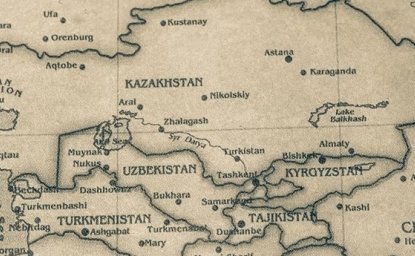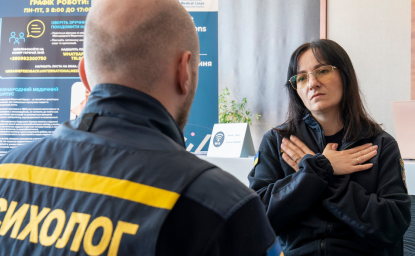The Development of Russian Civil Society

At a 14 January 2002 lecture at the Kennan Institute, Aleksandr Nikitin, Director, Coalition for the Environment and Human Rights, St. Petersburg, and Galina Starovoitova Fellow for Human Rights and Conflict Prevention, Kennan Institute, stated that the recent Kremlin-sponsored "Civic Forum," held in Moscow, was a momentous event because it was the first time that a Russian president has been willing to meet with the various leaders of non-governmental organizations. Despite being promoted as an unprecedented attempt to bring together prominent government and civic officials, the overall effectiveness of the event was limited by a variety of factors.
Nikitin began his presentation by explaining the background behind the forum. According to the information that was disseminated by the Kremlin's press office, the main objective of the forum was to create or develop mechanisms of interaction between government officials and civil society. However, Nikitin stated that many factors, including the construction of state-administered bureaucracies, dictatorship of the law, emergence of a one-party state, loyalty of the legislature to the Kremlin, and state-control of media outlets all contributed to the opposition leaders' skepticism of the Kremlin's motives. Nikitin noted that it soon became apparent that the conference was originally scripted as an opportunity to demonstrate the support for the government by civil society, because high-ranking Russian officials initially invited only those civic leaders who were loyal to President Putin. When many leaders of various human rights and environmental interest groups learned of the government's intentions they threatened to boycott the forum. In order to curb the political fallout, Russian officials accepted the activists' central demand that the organizing committee be reformed to consist of officials from the original organizing committee, prominent human rights and environmental leaders, and direct representatives of the President's staff.
Nikitin also pointed out that, despite the opposition's reorganization of the planning committee, many prominent environmentalist and human rights organizations still declined to attend the event. Officials from these organizations argued that Administration officials were pursuing their own objectives while using the forum to display to the West that the Kremlin was supportive of the development of a Russian civil society. Those leaders who decided to participate in the forum argued that they must attempt to engage the government in a serious dialogue, because the Administration possessed legitimate power.
According to Nikitin, the time constraints placed on the newly organized committee severely limited the success of the event. He explained that the debate between activist leaders and the Administration over the makeup of the organizing committee lasted nearly two months, and therefore the newly appointed organizers were left with only six weeks to restructure the conference's agenda and presentations. Nikitin stated that the plans for the original conference called for a more ceremonious, solidified presentation, requiring very little research or preparation. Following the change in the agenda, activist leaders had to quickly prepare presentations that addressed their respective topics. This required much more research and time, and consequently many of the presentations were incomplete. Because of the limited amount of time, organizers were also unsuccessful in finding a location in Moscow large enough to handle the event, and therefore had to schedule many of the meetings at locations throughout the city. Nikitin observed that this restricted the amount of dialogue between the two sides because many leaders were able to attend only two or three presentations.
Nikitin recalled that Putin's address spoke glowingly of the importance of a strong civil society and the government's role in promoting a favorable climate for its development. Putin stressed the importance of developing a civil society from a grassroots level, and further stated that civil society must be independent, possess its own base and be fed by the spirit of freedom. Following his remarks, Putin apologized to the crowd, saying that he had many other important things to attend to, and quickly exited with the other attending government officials. Nikitin used this example to illustrate that Putin has said many wonderful things over the past two years, but his actions do not always echo his statements and in many instances contradict the objectives that are so eloquently outlined in his speeches.
Nikitin also noted that the effectiveness of the event was limited because the forum lacked a central theme. Following the reorganization of the planning committee, representatives from all of Russia's non-government organizations were invited to the forum. Therefore, topics at many of the presentations covered a variety of non-related issues, making it difficult for activist leaders to correlate key points of discussion with government leaders. Nikitin also stated that leaders of many of the various ministries did not even bother to attend the meetings, instead choosing to send low-level staff to the more important roundtable discussions.
Nikitin concluded by saying that despite the limited success of the civic forum, activist leaders are continuing their efforts to develop an effective and stable civil society in Russia. Leaders continue to build upon the lessons learned from the latest event in organizing future forums, and have increased their lobbying efforts for increased cooperation and recognition. Other groups are focusing on informing the West about the government's human and civil rights' violations in an attempt to place more international pressure on Russia's leadership to increase dialogue with non-governmental organizations.
Author
Ph.D.candidate, Department of Politics, University of Virginia

Kennan Institute
The Kennan Institute is the premier US center for advanced research on Eurasia and the oldest and largest regional program at the Woodrow Wilson International Center for Scholars. The Kennan Institute is committed to improving American understanding of Russia, Ukraine, Central Asia, the South Caucasus, and the surrounding region though research and exchange. Read more




